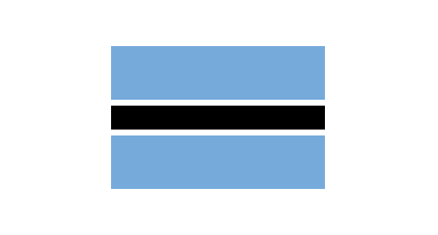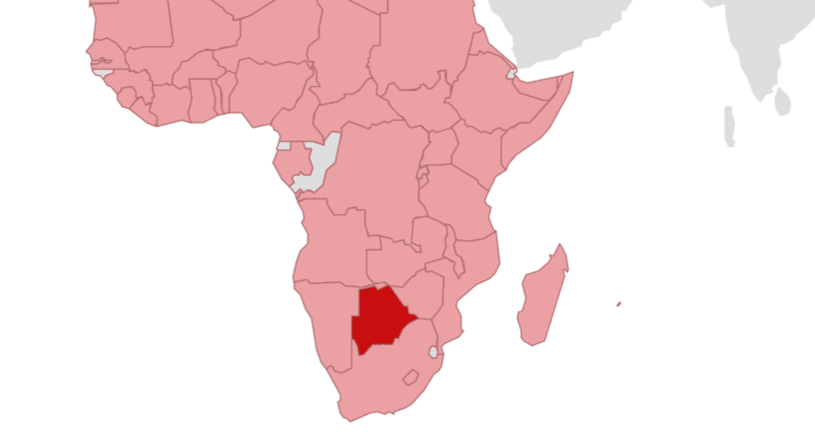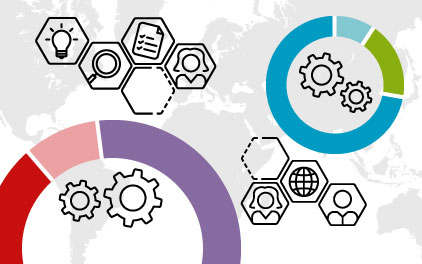

- NATURAL RESOURCE MANAGEMENT AND CLIMATE CHANGE
- ECONOMIC DEVELOPMENT AND EMPLOYMENT
- PEACE, SECURITY, GOVERNACE AND DEMOCRACY
- TRANSBOUNDARY WATER MANAGEMENT
Botswana
GIZ local staff
National employees: 64
International employees: 17
(as at: 31.12.2023)
Since the mid-1970s, German development cooperation has actively fostered regional integration and sustainable development in Botswana and the Southern African region. Today, its key partner, the Southern African Development Community (SADC), comprises 16 member states headquartered in Gaborone, Botswana, with a collective population exceeding 350 million. The Deutsche Gesellschaft für Internationale Zusammenarbeit (GIZ) GmbH has closely collaborated with SADC, a pivotal regional organisation, since its establishment in 1992.
Cooperation with the Republic of Botswana
Botswana has transformed into an upper middle-income economy and an exempla of governance and social development in Africa. Its robust governance framework, political stability, economic progress, and commitment to education and healthcare are considerable. Despite these advancements, Botswana faces energy supply challenges in urban areas without access to the national grid. Additionally, climate change-induced water scarcity poses a threat to agriculture, hindering overall growth. Prioritising sustainable energy solutions and strong climate resilience strategies are therefore vital for safeguarding the agricultural sector and citizen well-being.
Cooperation with SADC
GIZ’s collaboration with SADC aligns with the organisation's focus on democratic values, sustainable development, and overall regional progress in development, peace, and economic growth. Despite these goals, economic disparities, trade barriers, climate impact, governance issues, limited women's participation in economic processes, and challenges in efficient water resource management persist. Bridging the gap between regional commitments and public awareness remains a challenge. To achieve SADC's Vision 2050 of "a peaceful, inclusive, competitive, middle- to high-income industrialised region, where all citizens enjoy sustainable economic well-being, justice, and freedom", GIZ collaborates with partners and commissioners to promote regional integration, economic growth, and sustainability.
Impact that extends beyond borders: Commissioned by the German Federal Ministry for Economic Cooperation and Development (BMZ), GIZ magnifies its activities in the region through partnerships with the European Union, Austrian Aid, and others, reaffirming the commitment to fostering sustainable change across Southern Africa.
Presently, joint programmes focus on:
- Enhancing national-regional linkages
- Promoting economic integration
- Addressing climate resilience, natural resource management, transboundary water issues, and energy sustainability.
GIZ supports regional trade development, value chains, and initiatives for women's economic empowerment within SADC. Efforts in climate resilience, natural resource management, and energy aim to disseminate knowledge, implement adaptation models, and aid the tourism sector's recovery from COVID-19. Projects also assist partners in energy efficiency and renewable energy promotion. Work in the Cubango Okavango River Basin emphasises efficient water usage through climate-smart practices. GIZ contributes to SADC's efforts in harmonising water policies and enhancing strategic communication for improved visibility and awareness of regional integration.

